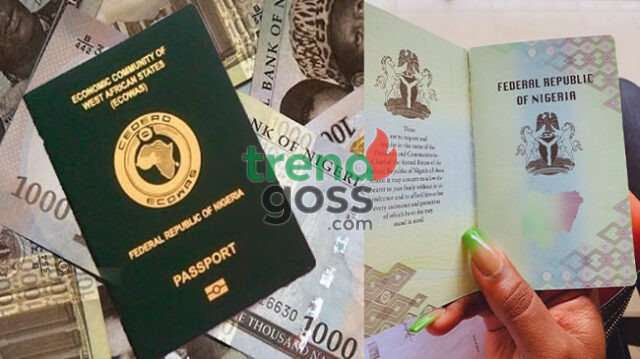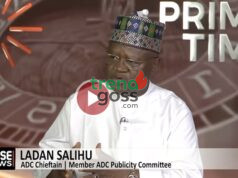In recent months, Nigerians have been grappling with yet another increase in the cost of acquiring and renewing international passports. The hike, announced by the Nigeria Immigration Service (NIS) and approved by the Federal Government, has drawn mixed reactions from citizens who consider the development an additional burden during a time marked by rising inflation, job losses, and a cost of living that often exceeds the minimum wage.
The most recent hike took effect on September 1, 2025, with the 32-page, five-year passport now costing N100,000 and the 64-page, 10-year passport priced at N200,000. This marks a sharp increase from the September 2024 adjustment, when fees were raised from N35,000 to N50,000 for the 32-page passport and from N70,000 to N100,000 for the 64-page booklet.
While the NIS maintains that the new rates are necessary to cover production costs and improve service delivery, many Nigerians feel further squeezed in an economy where inflation and unemployment already take a toll.
For many households, the revised fees place passports further out of reach, particularly for those who rely on travel for education, business, or medical reasons. Securing a passport now requires individuals to save up, leaving ordinary citizens feeling punished.
Beyond the pricing issue lies another longstanding challenge: the fragmentation of Nigeria’s identification systems. After a decade of trial and error, Nigeria struggles to streamline its identity management, as a more sustainable approach is needed to prevent the ID program from becoming an ongoing financial drain.
The Federal Government has rolled out multiple identity schemes, including the National Identity Number (NIN), Bank Verification Number (BVN), Permanent Voter’s Card (PVC), Driver’s License, and the International Passport. Each was introduced with the promise of harmonization, yet citizens still face the requirement of presenting several forms of identification when applying for passports or accessing services.
This inefficiency particularly affects small and medium-sized enterprises (SMEs), which are vital to Nigeria’s economy. Small business owners face repeated documentation, delays, higher operating costs, and limited access to finance due to the fragmented identification system.
The lack of identity harmonization means Nigeria operates multiple siloed identity databases managed by various government agencies. This duplication leads to wasted resources and delays, stifling growth and innovation.
As the debate over passport fees continues, one fact remains clear: the issue is not merely about rising costs but about the larger need for a citizen-centered identification system that works efficiently, fairly, and transparently. The federal government should suspend the fee hike until identity harmonization is achieved.
Blaise, a journalist and PR professional, writes from Lagos and can be reached via: blaise.udunze@gmail.com
#Nigeria #PassportFees #IdentificationCrisis #NIS #EconomicBurden #SMEs #IdentityManagement #GovernmentReform






